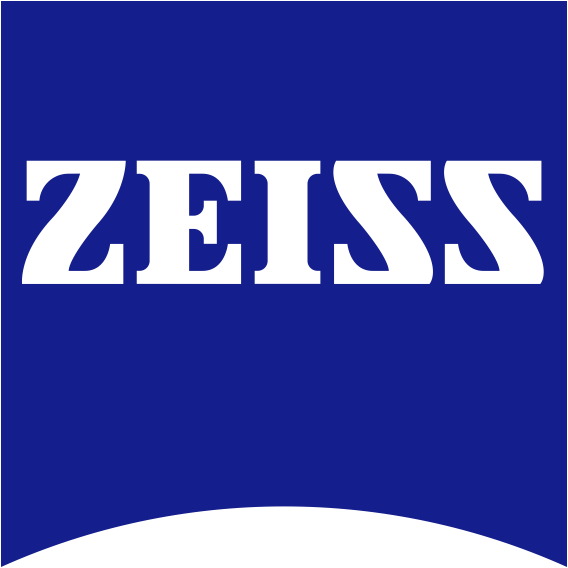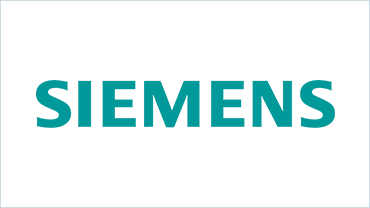Important notes
1. Attention attendees with poster presentations! Please send one pdf with the 1-2 slides to TBA (subject: short poster presentation), no later than one day before the poster session. Organizers will concatenate all these pdf's into one that will be used during the short poster presentation. For details see SCEE 2024/presentation guidelines.
2. All registered participants will receive the Book of Abstracts by email prior to the conference start.
Find the schedule at a glance here.
SCEE 2024 - Darmstadt, March 4-8
Registration is possible on Monday starting at 17:00, on Tuesday from 8:00 and on all other days from 8:30 onwards.
Monday, March 4, 2024
|
17:00–18:00 |
Registration |
|
|
Public lecture |
||
|
18:00–19:30 |
Wil Schilders |
Public lecture: The key role of mathematics in the electronics industry |
|
19:30–21:00 |
Welcome drink |
|
Tuesday, March 5, 2024
|
8:45–9:00 |
Opening ceremony |
|||||
|
Session A |
Computational Electromagnetics Multiphysics and multiscale modelling |
|||||
|
9:00–9:50 |
A1 |
Pilar Salgado |
Keynote: Multiphysics simulation of electrical upsetting processes: Focus on modelling and numerical analysis of the electromagnetic sub- model |
|||
|
9:50–10:10 |
A2 |
Louis Denis, Vincent Nuttens, Philippe Velten, Benoît Vanderheyden and Christophe Geuzaine |
A multi-scale approach within magneto-thermal FE simulations for the computation of AC losses in superconducting magnets |
|||
|
10:10–10:30 |
A3 |
Revathi Appali, Dennie Supriatna, Jan Philipp Payonk, Lam Vien Che and Ursula van Rienen |
Current challenges in multiphysics and multi-scale modelling of electrically active implants |
|||
|
10:30–11:00 |
Coffee break |
|||||
|
Session B |
Mathematical and Computational Methods Simulation methods involving neural networks |
|||||
|
11:00-11:20 |
B1 |
Ziqing Guo and Ruth Sabariego |
Physics-informed neural network for time domain 2D magneto-quasi-static simulation |
|||
|
11:20–11:40 |
B2 |
Moritz von Tresckow, Ion Gabriel Ion, Herbert De Gersem and Dimitrios Loukrezis |
Neural subdomain solver for magnetostatic field computations of a quadrupole magnet |
|||
|
11:40–12:00 |
B3 |
Paulo Machado, Giovanni Nastasi, L. Miguel Silveira and Ruxandra Barbulescu |
Efficient machine learning methods to predict the stationary electron density profile in a n+/n/n+ silicon diode |
|||
|
12:00-12:20 |
B4 |
Steven Stroka, Norman Haußmann and Markus Clemens |
Efficient assessment of high-resolution low-frequency magnetic field exposure scenarios using reduced order models |
|||
|
12:20–13:10 |
Lunch |
|||||
|
Session C |
||||||
|
13:10–14:00 |
C1 |
Giuseppe Alì |
Keynote: Semiconductor device models from the perspective of an applied mathematician |
|||
|
Session D |
Posters |
|||||
|
14:00–14:20 |
Poster blitz (1 minute slides) |
|||||
|
14:20–15:30 |
D1 |
Jan Wagner and Peter Thoma |
Semantic data structure for a digital twin of the EMC compliance testing domain |
|||
|
14:20–15:30 |
D2 |
Idoia Cortes Garcia, Pratik M. Kumbhar and Jonas Pade |
Convergence of waveform relaxation for index 2 field/circuit coupled DAEs classified with gener- alized circuit elements |
|||
|
14:20–15:30 |
D3 |
Petrus Wilhelmus Nicolaas van Diepen, Indy Pradyka Neerhoff, Roeland Johannes Dilz and Martijn Constant van Beurden |
The MOT-EFIE with loop-star decomposition |
|||
|
14:20–15:30 |
D4 |
Siamak Pourkeivannour, Mitrofan Curti and Elena A. Lomonova |
A two-dimensional implementation of Darwin formulation to model resistive-inductive- capacitive effects in foil windings |
|||
|
14:20–15:30 |
D5 |
Markus Kantner, Lasse Ermoneit, Burkhard Schmidt, Jürgen Fuhrmann, Arnau Sala, Lars R. Schreiber and Thomas Koprucki |
Simulation and optimal control of semiconduc- tor spin-qubit shuttles in Si/SiGe for scalable quantum computing architectures |
|||
|
14:20–15:30 |
D6 |
Ara Abdulsatar Assim Assim, Aarno Pärssinen and Timo Rahkonen |
Modeling image frequency signal and its cancellation in complex downconversion circuit |
|||
|
14:20–15:30 |
D7 |
Igor Tsukerman and Vadim Markel |
Bulk-boundary correspondence in topological electrodynamics: From 1D to higher dimensions |
|||
|
14:20–15:30 |
D8 |
Jürgen Dölz, David Ebert, Sebastian Schöps and Anna Ziegler |
Shape uncertainty quantification of Maxwell eigenmodes and -spaces with application to TESLA cavities |
|||
|
14:20–15:30 |
D9 |
Jonas Bundschuh, Yvonne Späck-Leigsnering and Herbert De Gersem |
Foil winding homogenization with consideration of capacitive effects |
|||
|
14:20–15:30 |
D10 |
Markus Clemens, Marvin-Lucas Henkel, Fotios Kasolis and Michael Günther |
A port-Hamiltonian system perspective on electromagneto-quasistatic field formulations of Darwin-type |
|||
|
14:20–15:30 |
D11 |
Alistair Muir, Ursula van Rienen, Erion Gjonaj, Paul Voltz, Frederik Quetscher and Atoosa Meseck |
Modelling the beam impedance of elliptical undulators using the coupled S-parameter calculation |
|||
|
14:20–15:30 |
D12 |
Wei Chen, Thomas Henneron, Stéphane Clénet and Jun Zou |
Determination of an electrical equivalent circuit of a PCB using the Cauer ladder network method |
|||
|
14:20–15:30 |
D13 |
Théodore Cherrière |
Toward multi-material topology optimization of doubly-excited electrical machines using recursive material interpolation |
|||
|
14:20–15:30 |
D14 |
Francesco Ferranti |
Machine learning for wavelength-dependent responses in nano photonics |
|||
|
15:30–16:00 |
Coffee break |
|||||
|
Session E |
Computational Electromagnetics Formulations |
|||||
|
16:00–16:20 |
E1 |
Herbert Egger, Felix Engertsberger and Bogdan Radu |
A scalar potential approach for magnetostatics avoiding the coenergy |
|||
|
16:20–16:40 |
E2 |
Robert Hahn, Erik Schnaubelt, Mariusz Wozniak, Andrea Vitrano, Christophe Geuzaine and Sebastian Schöps |
Mortar thin shell approximation for transient analysis of superconducting accelerator magnets |
|||
|
16:40–17:00 |
E3 |
Gabriela Ciuprina, Claudia Pacurar and Ruth V. Sabariego |
Electric circuit element boundary conditions for electromagnetic quasistatic models: A-ϕ poten- tials versus E-field based formulations |
|||
|
17:15–19:00 |
Touristic walk |
|||||
Wednesday, March 6, 2024
|
Session F |
Coupled Problems and Modelling Applications |
||
|
9:00–9:50 |
F1 |
Martina Busetto and Christoph Winkelmann |
Keynote: Modelling, methods development and scientific computing at ABB |
|
9:50–10:10 |
F2 |
Karsten Müller, Andreas Wanke, Yves Burkhardt and Herbert De Gersem |
Comparison and analysis of skewing methods of PMSM in 2D and 3D FEA simulations |
|
10:10–10:30 |
F3 |
Albert Piwonski, Julien Dular, Rodrigo Silva Rezende and Rolf Schuhmann |
Electromagnetic modeling of power cables with large cross sections using coordinate transformations and homogenization techniques |
|
10:30–11:00 |
Coffee break |
||
|
Session G |
Mathematical and Computational Methods Optimization and inverse problems |
||
|
11:00-11:20 |
G1 |
Christian Bergfried, Leon Blumrich, Armin Galetzka, Yvonne Späck-Leigsnering and Herbert De Gersem |
Thermal model calibration of a squirrel-cage induction machine |
|
11:20–11:40 |
G2 |
Nepomuk Krenn and Peter Gangl |
Multi-material topology optimization of an electric machine considering demagnetization |
|
11:40–12:00 |
G3 |
Stefan Eijsvogel, Roeland Dilz and Martijn van Beurden |
Exploring the reconstruction of a finite dielectric frustum-shaped object by the parametrized spatial spectral volume integral equation |
|
12:00–13:30 |
Lunch |
||
|
13:30–17:30 |
Excursion |
||
|
18:00–22:00 |
Conference dinner |
||
Thursday, March 7, 2024
|
Session H |
Mathematical and Computational Methods Scalable solvers |
||
|
9:00–9:50 |
H1 |
Vandana Dwarka |
Keynote: Towards fast and scalable iterative solvers for indefinite systems arising in electro- magnetic simulations |
|
9:50–10:10 |
H2 |
Frederik Quetscher, Erion Gjonaj and Herbert De Gersem |
Modal transmission condition for domain decomposition for guided wave problems |
|
10:10–10:30 |
H3 |
Herbert Egger, Felix Engertsberger and Bogdan Radu |
On the convergence of iterative solvers for non- linear magnetostatics |
|
10:30–11:00 |
Coffee break |
||
|
Session I |
Mathematical and Computational Methods Model reduction and surrogate modelling |
||
|
11:00-11:20 |
I1 |
Christine Herter, Sebastian Schöps and Winnifried Wollner |
Eigenvalue optimization with respect to shape variations in electromagnetic cavities |
|
11:20–11:40 |
I2 |
Anna Ziegler, Melina Merkel and Sebastian Schöps |
Spurious modes in reduced basis approximations for Maxwell’s eigenvalue problem |
||
|
11:40–12:00 |
I3 |
Antonio Carlucci and Stefano Grivet Talocia |
Rational approximation for the solution of large-scale Lyapunov equations |
||
|
12:00–12:20 |
I4 |
Pascal Den Boef, Joseph Maubach, Wil Schilders and Nathan van de Wouw |
Reduced rank extrapolation for low-rank matrix sequences |
||
|
12:20–13:10 |
Lunch |
||||
|
Session J |
Computational Electromagnetics Material modelling |
||||
|
13:10–14:00 |
J1 |
Benoît Vanderheyden |
Keynote: Finite element models for type-II superconductors: constitutive laws and formulations |
||
|
Session K |
Posters |
||||
|
14:00–14:20 |
Poster blitz (1 minute slides) |
||||
|
14:20–15:30 |
K1 |
Alessio Cesarano and Peter Gangl |
Tracing pareto-optimal points in multi-objective shape optimization applied to electric machines |
||
|
14:20–15:30 |
K2 |
Herbert Egger, Felix Engertsberger and Klaus Roppert |
On the regularized H-field approach for nonlinear magnetostatics |
||
|
14:20–15:30 |
K3 |
Rodrigo Silva Rezende, Albert Piwonski and Rolf Schuhmann |
Recurrent neural networks as predictors of time signals from electromagnetic simulations |
||
|
14:20–15:30 |
K4 |
Leon Herles, Mario Mally, Melina Merkel, Jörg Ostrowski and Sebastian Schöps |
Frequency-stable full Maxwell using generalized tree-cotree gauging |
||
|
14:20–15:30 |
K5 |
Peter Förster, Idoia Cortes Garcia, Lennart Jansen, Wil Schilders and Sebastian Schöps |
Index-aware learning of circuits |
||
|
14:20–15:30 |
K6 |
Jonas Christ and Erion Gjonaj |
A self-consistent model for wakefield and space charge calculations |
||
|
14:20–15:30 |
K7 |
Sosoho-Abasi Udongwo, Shahnam Gorgi Zadeh, Piotr Putek, Rama Calaga and Ursula van Rienen |
Comparative analysis of sensitivity results between a 3D HOM coaxial coupler model and an equivalent circuit mode |
||
|
14:20–15:30 |
K8 |
Karthik Sridhar, Ursula van Rienen and Revathi Appali |
Understanding local field potential recordings by segmented deep brain stimulation electrodes: A computational study |
||
|
14:20–15:30 |
K9 |
Mario Mally, Leon Herles, Idoia Cortes Garcia and Sebastian Schöps |
Parallelization in space and time for parabolic problems in 3-D |
||
|
14:20–15:30 |
K10 |
Elias Paakkunainen, Jonas Bundschuh, Idoia Cortes Garcia, Herbert De Gersem and Sebastian Schöps |
Circuit consistency and structure of inductive foil conductor models |
||
|
14:20–15:30 |
K11 |
Herbert Egger and Vsevolod Shashkov |
A magnetic oriented approach to field-circuit coupling |
||
|
14:20–15:30 |
K12 |
Kersten Schmidt and Timon Seibel |
On a hybridized domain decomposition formulation |
||
|
14:20–15:30 |
K13 |
Tobias Karim Aouini, Ortwin Farle, Timo Euler and Sebastian Schöps |
Investigation of S-parameter evaluation for coupled meshes in hybrid solver scenarios |
||
|
14:20–15:30 |
K14 |
Kersten Schmidt |
Eddy current modelling with thin sheet basis functions |
||
|
15:30–16:00 |
Coffee break |
||||
|
Session L |
Circuit Simulation & Coupled Problem and Modelling |
||||
|
16:00–16:20 |
L1 |
Orazio Muscato, Giovanni Nastasi, Giorgia Vitanza and Vittorio Romano |
Optimized quantum drift-diffusion model for a resonant tunneling diode |
||
|
16:20–16:40 |
L2 |
Ricardo Riaza |
Some recent results involving homogeneous models of electrical and electronic circuits |
||
|
16:40–17:00 |
L3 |
Tommaso Bradde and Stefano Grivet-Talocia |
Certified stable LPV macromodels of mildly nonlinear circuits |
||
Friday, March 8, 2024
|
Session M |
Mathematical and Computational Methods Uncertainty quantification & stochastic models |
||
|
9:00–9:50 |
M1 |
Dimitrios Loukrezis |
Keynote: Reduced order modeling and uncertainty quantification for (electromagnetic) digital twins |
|
9:50–10:10 |
M2 |
Roland Pulch |
Stochastic Galerkin method for linear port-Hamiltonian differential-algebraic equations |
|
10:10–10:30 |
M3 |
Maximilian Schade, Nicolas Perkowski and Caren Tischendorf |
Coupled systems of SDEs and SPDEs with algebraic constraints |
|
10:30–11:00 |
Coffee break |
||
|
Session N |
Coupled Problems and Modelling Device modelling and simulation |
||
|
11:00-11:20 |
N1 |
Clemens Etl, Mauro Ballicchia, Mihail Nedjalkov and Josef Weinbub |
Signed-particle Monte Carlo algorithm for Wigner transport in linear electromagnetic fields |
|
11:20–11:40 |
N2 |
Daniele Soccodato, Gabriele Penazzi, Alessandro Pecchia, Anh-Luan Phan and Matthias Auf der Maur |
Machine learned corrections to the Empirical Tight-Binding method |
|
Session 0 |
Mathematical and Computational Methods Parallel-in-time methods |
||
|
11:40–12:00 |
O1 |
Julian Sarpe, Andreas Klaedtke and Herbert De Gersem |
Parallel-in-time adjoint sensitivity analysis for time-periodic circuits |
|
12:00–12:20 |
O2 |
Erik Schnaubelt, Mariusz Wozniak, Julien Dular, Idoia Cortes Garcia and Sebastian Schöps |
Parallel-in-time integration of transient phenomena in no-insulation superconducting coils using parareal |
|
12:20–12:30 |
Closing remarks |
||
|
12:30–13:30 |
Lunch |
||






